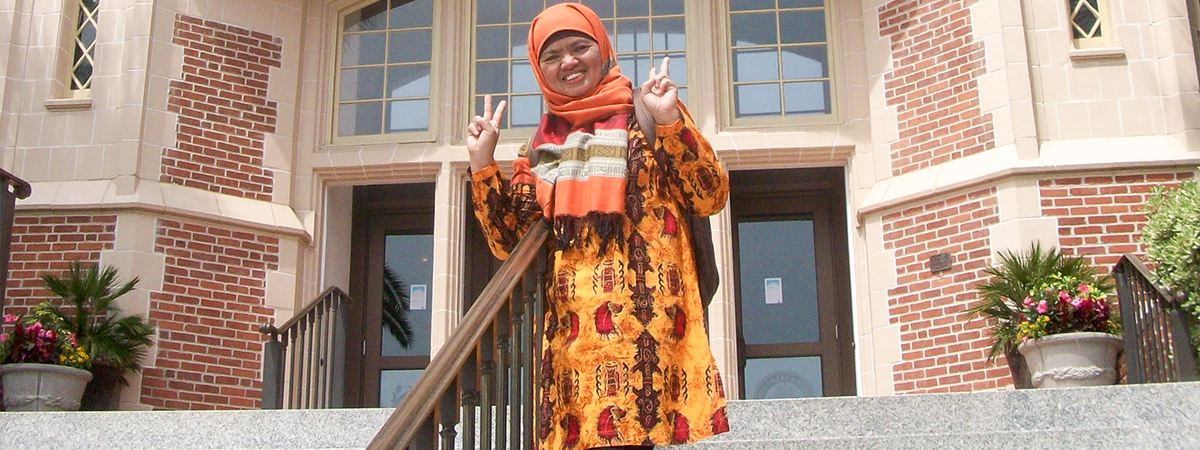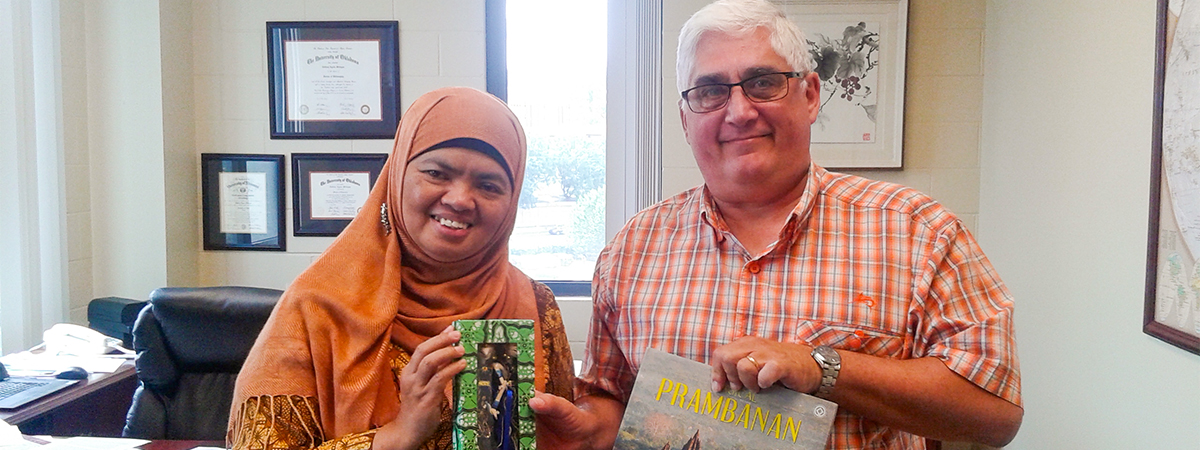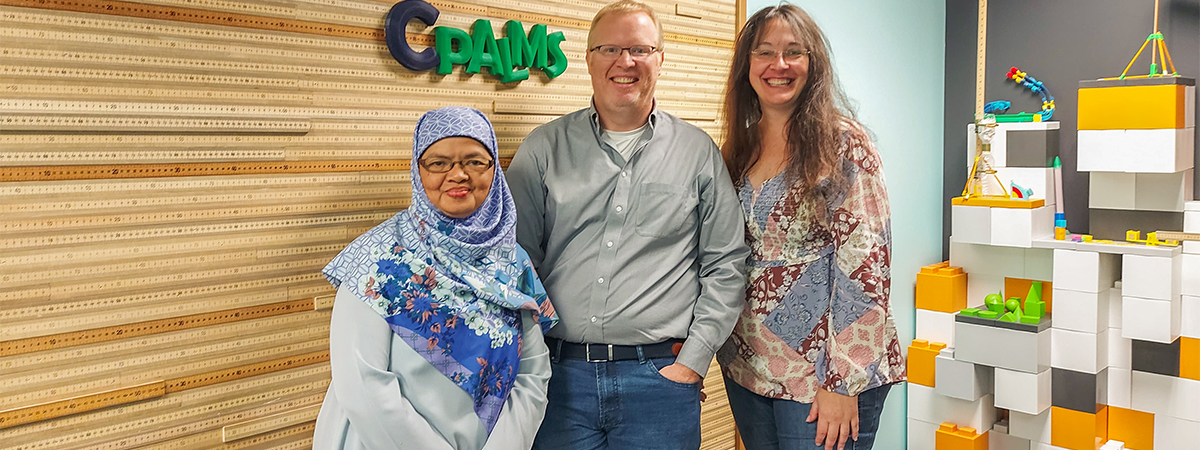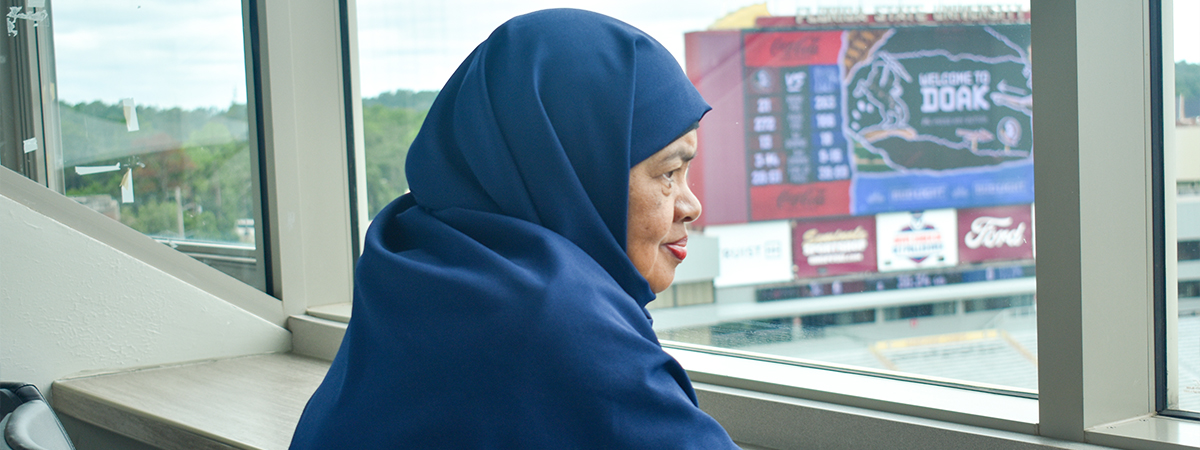Return To FSU Is A Full Circle Moment For Fulbright Scholar Dr. Djulia

By Larissa Martins, LSI Communications Assistant
Ever since she was a little girl, Dr. Ely Djulia Katmadihardja has been captivated by the power of science in solving real-world problems. Her natural curiosity and innovative disposition have propelled her to become a prominent leader in science education in her home country of Indonesia, and a Fulbright Visiting Scholar program grant has brought her to Florida State University once again.
This fellowship represents a full circle moment for Dr. Djulia, who first began working with the Learning Systems Institute at FSU in 2006 during the Decentralized Basic Education Project in Indonesia led by Dr. Jeffrey Milligan, former director of LSI. She played a crucial role until the project's completion in 2011 and, a few years later, she visited FSU for the first time to discuss additional research opportunities in teacher education with Dr. Milligan.

As a professor and researcher in biology education at Universitas Negeri Medan, Dr. Djulia teaches various undergraduate and graduate courses aimed at training future educators. Her courses range from teaching plant ecology to science education strategies and evaluations.
In her research, Dr. Djulia has found that modern scientific knowledge tends to align with local indigenous wisdom. For example, traditional Indonesian houses built from wood and bamboo are highly resistant to earthquake damage due to their lightweight, flexible structure that efficiently absorbs and distributes seismic energy. Her extensive research findings on the interconnectedness of modern science and ancient cultural practices have inspired her to explore ways to bridge the gap between formal STEM education and cultural knowledge.
"I want to integrate all the cultural phenomena into the school sciences because they are connected based on theory and also in practice," Dr. Djulia explained.
Throughout her teaching career, Dr. Djulia has maintained an adaptable teaching approach that meets the fluctuating needs of her students. Upon identifying a skill transference issue in students who were excelling in STEM projects but struggling to apply that knowledge to practical lesson plans, she developed an approach to address the challenge. The development of the SC-STEM-RL teaching model supports pre-service teachers by focusing on the following core elements: self-identification, cultural understanding, STEM collaboration, critical reflective thinking, and lesson planning.
Working at FSU and with LSI has perfectly fit Dr. Djulia's goals of integrating culturally responsive pedagogy into STEM education. She hopes to deepen her understanding of the best teaching practices to implement in the Indonesian education system. She is particularly interested in CPALMS, an online platform developed by LSI that provides thousands of resources for teachers in Florida.
"I think it's very interesting that more than 200,000 teachers in Florida use CPALMS—it is a great model for teachers," said Dr. Djulia. "CPALMS is what brought me here."

During her fellowship, Dr. Djulia has been working closely with LSI Directors of STEM Outreach Carrie Meyers and Jim Reynolds to gain insights into CPALMS. She hopes to eventually create a similar system that supports Indonesian teachers by equipping them with an online toolkit, such as how CPALMS assists teachers with lesson planning resources.
"My eLearning project aims to help teachers when they integrate STEM education into their teaching and have to produce their lesson plans," explained Dr. Djulia.
In addition to her research on CPALMS, Dr. Djulia is engaging with several departments at FSU to observe STEM education teaching strategies. She has been shadowing classes in the College of Education, Health and Human Sciences including a course called Conceptual Learning in Elementary School Science, instructed by Khadija Zogheib and Sherry Southerland. She also met with Dr. Ellen Granger, Director of the Office of STEM Teaching Activities (OSTA), and her colleague Dr. Barbara Shoplock, who warmly welcomed Dr. Djulia and invited her to participate in two OSTA programs: Saturday at the Sea (SATS) and the Teacher Professional Development Program.
Dr. Djulia expressed her appreciation for FSU's dynamic academic environment and lively community. She has enjoyed exploring the campus and spending time in the various study spaces available for students, like the Strozier and Dirac libraries.
"It's beautiful here. It's very nice to hear from the undergraduate and graduate students, and the learning environment, both indoor and outdoor, is very inspiring for me," Dr. Djulia said.

As a long-time collaborator of LSI for nearly two decades, Dr. Djulia is grateful to be furthering her professional ambitions through this enriching experience as a Fulbright Scholar at FSU. She is an influential leader in Indonesia because of her passion for science and commitment to teacher education.
"When I go back to my country, the first step is to implement my learning into the Pre-service Biology Teacher Education Program," Dr. Djulia stated. "My future plan is to create various results that help them to implement anything in theory and in the practice of how to be a good science teacher in the future with comprehensive skills."
